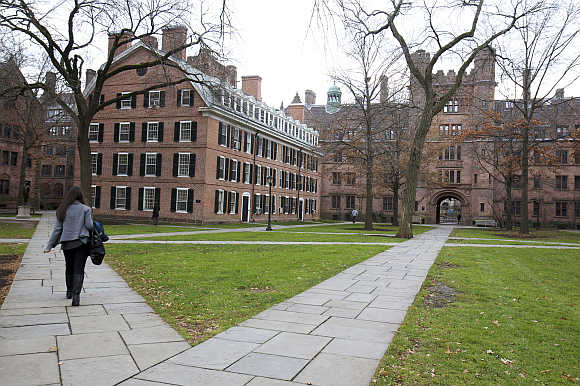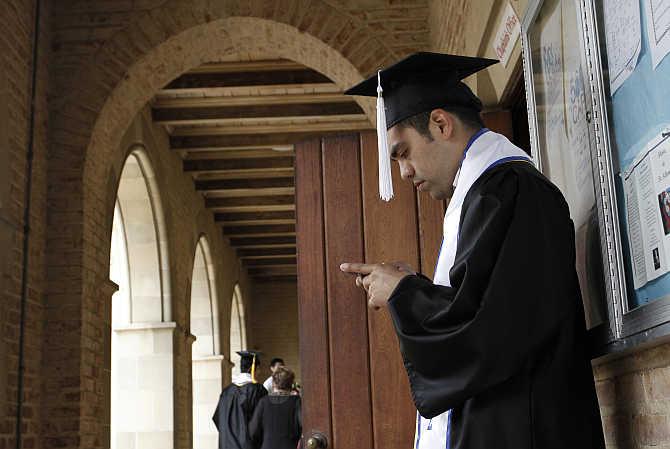Photographs: Reuters Courtesy YouthIncMag
What is the smartest way to cut costs on your international education? Pick the right country, course and university. Read on to find out how!
Making the right choices about where and what to study is vital can be crucial because it directly influences your education expenditure.
Each of these decisions will affect the amount of money you will need to invest in your education in the short run and how successful you will be in your career in the long run.
Pick the right country
Probably the first decision, and one of the most important ones, you will make with regard to studying abroad is picking which country to pursue your education.
There are many factors to consider when making this decision but considering the drop in the Indian economy, it would be advisable to pick a country where you can find a balance between a good quality of life and a better exchange rate for the rupee.
Also remember to factor in what course you will be attending and the quality of education provided in that country for that industry.
For example, students interested in pursuing a career in medicine should consider attending a course in Russia which is reputed for its medical programmes and has a lower cost of living as compared to Australia, the USA and the UK.
Courtesy:YouthIncMag.com

Please click NEXT to continue reading...
Study abroad: 3 smart decisions that'll help you save money
Image: For representational purposes onlyPhotographs: Michelle McLoughlin/Reuters
Pick the right university
When you are making a decision about which university you would like to attend, make sure you find out the tuition fees for the respective course you wish to attend in the university.
In general, universities can be broadly divided into private and public institutes.
The public universities will be funded by a federal or state government and will have lower tuition fees as compared to the privately funded universities.
There are many advantages to attending a private university including flexibility, more extracurricular activities, a large number of on-campus organisations to be a part of and occasionally a better quality of education (although that may not always be true).
Lodging is also an important factor that should come into account when picking a university; it is best to secure on-campus lodging for overall convenience.
If that isn't possible always pick a university where you can get lodging with minimal to and from travel costs.
Study abroad: 3 smart decisions that'll help you save money
Image: For representational purposes onlyPhotographs: Jonathan Alcorn/Reuters
Pick the right course
Another factor to consider in picking where to study is to consider the amount of time you will spend in the foreign country.
It is obvious that the more time spent on attaining your degree, the more money you are likely to spend on course fees and living expenses.
For example, the course duration for a Bachelor of Arts (BA) degree programme in the United Kingdom is three years whereas the same programme would take four years to complete in the United States of America.
However, since the American system of credits allows for flexibility, it is possible to complete the course quicker by taking up summer school programmes or attending extra classes during the semesters.
Similarly, a master’s programme in the UK is a 12-month programme as compared to the regular 24-month programme in the US.




Comment
article